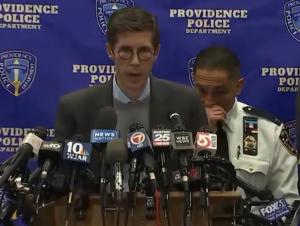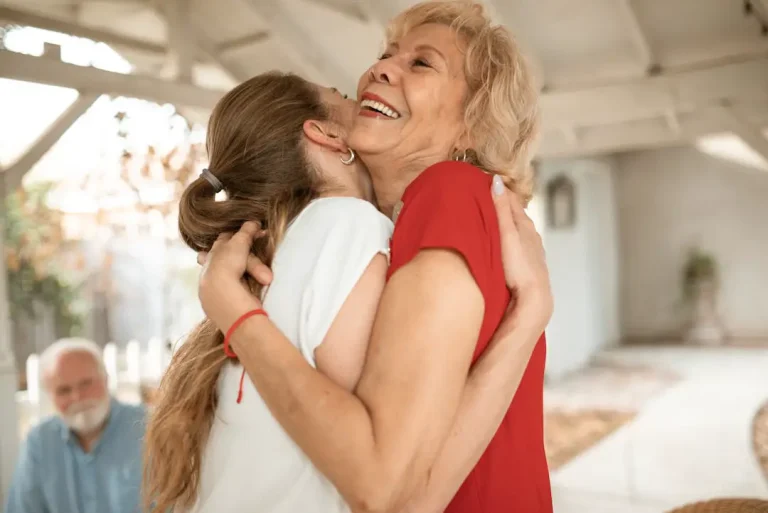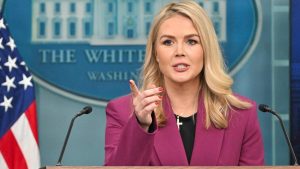“I’ll Repay You When I Grow Up”: The 12-Year-Old’s Promise That Changed Two Lives Forever
Atlanta, 1997: A Desperate Promise
The summer heat in Atlanta hit different in 1997, especially in the neighborhoods where air conditioning was a luxury most families couldn’t afford. In a cramped two-bedroom apartment on the east side, twelve-year-old Keisha Brown sat on the worn linoleum floor, cradling her six-month-old brother Malik in her thin arms while he screamed with hunger.
Their mother, Sandra Brown, had collapsed on the couch three hours ago, her body finally succumbing to the exhaustion of working double shifts at the textile factory for the past nine days straight. She’d been skipping meals to make sure Keisha and the baby had food, stretching every dollar until it snapped, running on fumes and determination until there was nothing left.
Keisha had tried everything to soothe Malik. She’d rocked him, sang to him, walked him around the tiny apartment until her legs ached. But she knew what he needed—what she couldn’t give him. He needed milk, and their bottles were empty. The formula container sat on the kitchen counter, light as air, mocking her with its emptiness.
She checked her pockets with trembling hands, finding the coins she’d been saving from returning bottles and cans: two quarters, three dimes, and a handful of pennies. Eighty-five cents. Not even enough for a small carton of milk.
Keisha looked at her mother’s sleeping form, at the dark circles under her eyes, at the way her work uniform was stained with sweat and factory dust. She couldn’t wake her. Sandra needed this sleep more than she needed air.
So Keisha made a decision. She wrapped Malik in the cleanest blanket she could find, tucked the coins into her pocket, and stepped out into the scorching afternoon, praying someone would help.
The Corner Store
Morgan’s Grocery occupied the corner of Piedmont and Auburn, a well-maintained establishment that stood out among the struggling storefronts and boarded-up windows that characterized much of the neighborhood. It was one of several stores owned by Richard Morgan, a self-made millionaire who’d built his empire from a single corner market thirty years ago.
The automatic doors whooshed open, and Keisha stepped into the blessed coolness of air conditioning. The contrast from the oppressive heat outside was so stark it made her dizzy for a moment. The store was busy—businessmen in suits buying bottled water, mothers with full shopping carts, elderly couples examining produce with the careful attention of people who knew exactly how far their fixed income would stretch.
Everything looked so abundant, so pristine. The fluorescent lights made everything gleam. The shelves were fully stocked. The smell of fresh bread from the bakery section mixed with the clean scent of floor wax and air freshener.
Keisha felt acutely aware of how she must look—her t-shirt was two sizes too big, a hand-me-down from a neighbor. Her shorts had a patch on the knee that her mother had sewn on by hand. Her sneakers, once white, were now a dingy gray, and the sole was starting to separate from the left one.
But Malik’s cries pushed through her embarrassment. She had to try.
Near the customer service counter, she spotted him—a man in an immaculate gray suit, his salt-and-pepper hair perfectly styled, a gold watch catching the fluorescent light every time he moved his wrist. People seemed to defer to him, moving slightly out of his way, greeting him with particular respect. Even without knowing his name, Keisha could tell he was important.
What she didn’t know was that Richard Morgan had come to this particular store today because of a complaint about the produce quality. He’d built his business on attention to detail, on knowing every aspect of his operations. At fifty-eight years old, he’d seen every con, every sob story, every attempt to manipulate his sympathy for financial gain.
Keisha approached slowly, her heart hammering so hard she could feel it in her throat. Malik had stopped crying from sheer exhaustion, but his little face was red and wet with tears.
“Sir,” she said, her voice barely above a whisper, lost in the ambient noise of the store. She tried again, slightly louder. “Excuse me, sir.”
Richard turned, his expression neutral, his eyes taking in the scene with the practiced assessment of someone who’d learned to spot trouble before it arrived.
“My baby brother is hungry,” Keisha said, the words tumbling out in a rush now that she had his attention. “Our mama’s sick. We don’t have any milk. Could I please… could I please have just one box? The small one. I’ll repay you when I grow up. I promise.”
The store seemed to go quiet, though logically Keisha knew that was impossible. But the people nearby had definitely stopped what they were doing. The cashier stared. A woman with a shopping cart full of groceries looked between Keisha and Richard with undisguised curiosity.
Richard’s jaw tightened. He’d heard variations of this speech a hundred times. People always had a story. They always needed help. They always promised to pay it back. And they never did.
“Little girl,” he said, his voice cold enough to make Keisha flinch, “you shouldn’t make promises you can’t keep. Do you have any idea how many people tell me sob stories every week?”
Keisha’s eyes filled with tears, but she held her ground. Something in her—some stubborn spark of pride inherited from a mother who worked herself to exhaustion rather than beg—made her lift her chin slightly.
“I mean it,” she said softly but firmly. “I’ll repay you. I promise. I don’t break promises.”
For a moment, something flickered across Richard’s face—an expression too quick to name. Perhaps it was the way she said it, with such absolute conviction. Perhaps it was the baby in her arms, so small and helpless. Perhaps it was something in her eyes that reminded him, just for a heartbeat, of his own daughter Emily, who was about this age, whom he rarely saw anymore because work always came first.
With a heavy sigh that sounded more like irritation than compassion, Richard pulled out his leather wallet and extracted a twenty-dollar bill. He handed it to the cashier. “Ring up a container of formula and whatever milk that covers. The big ones.”
But when the items were bagged, instead of handing them to Keisha, he pushed them across the counter with enough force that one of the bottles nearly toppled over.
“Take it,” he said curtly. “And don’t come begging here again. This isn’t a charity.”
A collective gasp rippled through the nearby customers. One woman shook her head in disgust. The cashier looked uncomfortable, avoiding eye contact with everyone.
Keisha’s cheeks burned with humiliation that felt like a physical thing, hot and heavy and shameful. But her brother needed food more than she needed dignity.
“Thank you, sir,” she whispered, bowing her head and gathering the bags with shaking hands. “I’ll repay you someday. I will.”
Then she ran—out of the store, into the brutal heat, tears streaming down her face and mixing with the sweat and dust of the Atlanta summer.
Behind her, Richard stood frozen at the counter, watching the automatic doors close. Her words echoed in his mind with unsettling persistence: I’ll repay you when I grow up.
He shook his head, dismissing the uncomfortable feeling in his chest. It was just another day. Another beggar. Another small inconvenience.
He had no way of knowing that in that moment, despite his coldness, despite his cruelty, despite his intention to humiliate rather than help, he had planted a seed that would one day save his life.
Twenty Years of Growing
The years that followed were not easy for Keisha Brown. Her mother recovered from that particular collapse, but the exhaustion was chronic, the struggle was constant, and money was always scarce. But Sandra Brown had raised her daughter to believe that education was the one thing no one could take away, and Keisha absorbed that lesson like her life depended on it—because it did.
She studied by candlelight when the electricity was shut off. She worked three part-time jobs in high school while maintaining a 4.0 GPA. She applied for every scholarship, every grant, every program that might help a poor Black girl from East Atlanta dream of becoming something more than her circumstances suggested she could be.
The memory of that day in the grocery store stayed with her, not as trauma but as fuel. She remembered the contempt in Richard Morgan’s eyes, the way he’d pushed the milk across the counter like she was beneath his notice. But she also remembered that he’d helped—reluctantly, cruelly, but he’d helped when no one else had.
And she’d made a promise.
Keisha won a full scholarship to Spelman College, where she majored in biology with a focus on pre-med. She graduated summa cum laude, then earned admission to Emory University School of Medicine—one of the top medical schools in the country.
Medical school nearly broke her. The long hours, the crushing debt despite scholarships, the constant feeling of being behind her wealthier classmates who didn’t have to work night shifts to pay for textbooks. But every time she wanted to quit, she thought about Malik—now a healthy, thriving teenager thanks to that formula, thanks to her mother’s sacrifices, thanks to her own determination.
She thought about the promise she’d made to a cruel man in a gray suit.
By the time she completed her residency in internal medicine, Dr. Keisha Brown had developed a reputation: brilliant diagnostician, exceptionally skilled in critical care, and uncommonly compassionate with patients others had written off as hopeless.
At thirty-two years old, she was a respected attending physician at Grady Memorial Hospital, known not just for her medical expertise but for her commitment to treating the poor and uninsured with the same care she gave to insured patients. She volunteered at free clinics, mentored students from underprivileged backgrounds, and never forgot where she’d come from.
Her brother Malik was now twenty, a junior at Georgia Tech studying engineering, healthy and full of gratitude for the sister who’d raised him almost as much as their mother had. Sandra Brown, now sixty-three and retired on disability, lived comfortably in a small house Keisha had purchased, finally free from the grinding poverty that had defined so much of her life.
“Baby,” Sandra often told Keisha, tears in her eyes, “you turned our pain into purpose. You made something beautiful from all that suffering.”
But Keisha never forgot the debt. In the back of her mind, that promise remained unpaid, a thread connecting her past to her present, waiting for its moment to pull taut.
The Night Everything Changed
It was a Tuesday evening in 2017, unseasonably cool for September in Atlanta. Keisha had just finished a long shift—fourteen hours that had involved two complicated surgeries, a code blue that they’d barely pulled back from the edge, and the kind of exhaustion that settles into your bones and makes you feel older than your years.
She was reviewing charts in the doctors’ lounge, contemplating the drive home and the leftover pasta waiting in her refrigerator, when the doors burst open.
“Dr. Brown!” The ER nurse, Jackie Rodriguez, was breathing hard, her eyes wide with urgency. “Trauma incoming. Elderly male, cardiac arrest on arrival. Ambulance called it in two minutes ago.”
Keisha was already moving, muscle memory taking over, the exhaustion falling away like a shed coat. “Prep the OR. Get cardio on standby. What do we know?”
“Seventy-eight-year-old male, collapsed at home. Wife called 911. Paramedics shocked him twice in the ambulance. Weak pulse now but vitals are unstable.”
They ran down the corridor, the squeak of their shoes on linoleum creating an urgent rhythm. Keisha’s mind was already running through protocols, preparing for every contingency.
The ambulance bay doors flew open. Paramedics wheeled in a gurney surrounded by organized chaos—someone doing chest compressions, another managing the oxygen, a third calling out vitals in the clipped shorthand of emergency medicine.
Keisha took her position at the head of the gurney, her hands already reaching for the patient. “On my count—one, two, three.”
They transferred him to the hospital gurney with practiced efficiency. Keisha’s eyes scanned his face—an elderly man, well-dressed even in crisis, his gray hair neatly trimmed, expensive watch on his wrist.
“Get him to OR 3,” she commanded. “Jackie, hand me his chart.”
The nurse thrust the paperwork toward her as they ran. Keisha glanced at the intake form, looking for allergies, pre-existing conditions, anything that would inform her treatment.
Her eyes landed on the patient’s name.
Richard Morgan.
Time seemed to slow, the rush of movement around her fading to a distant buzz. Her hands holding the clipboard began to shake.
It couldn’t be. There were probably dozens of Richard Morgans in Atlanta.
But then she saw the address—a mansion in Buckhead, one of the wealthiest neighborhoods in the city. She saw the emergency contact—Emily Morgan, daughter. She saw the insurance information—premium coverage, the kind that came with extreme wealth.
And she saw his face again, really looked this time, past the oxygen mask and the age and the vulnerability of crisis. She saw the man from the grocery store twenty years ago, the one who’d looked at a hungry child with contempt, who’d bought milk like he was doing her a favor she didn’t deserve.
The man who, despite his cruelty, had saved her brother’s life.
“Dr. Brown?” Jackie’s voice cut through her paralysis. “What are your orders?”
Keisha took a deep breath. Twenty years of training, of ethical commitment, of honoring the Hippocratic Oath she’d taken with her hand on her grandmother’s Bible. Twenty years of becoming someone who believed that every life had value, regardless of how that person had treated you.
“Get him prepped,” she said, her voice steady and strong. “We’re going to save him.”
The Surgery
The operation was one of the most challenging of Keisha’s career. Richard had suffered a massive myocardial infarction—a heart attack caused by multiple blockages in his coronary arteries. His heart rhythm was unstable, fluctuating between barely viable and flat-lining.
For six hours, Keisha worked with her team, her hands steady despite the emotional storm raging beneath her professional composure. Every time the monitor alarm blared, every time his heart threatened to give out entirely, she fought harder.
“We’re losing him,” the cardiovascular surgeon assisting her said grimly. “Dr. Brown, his heart can’t take much more.”
“He’s going to live,” Keisha said through her surgical mask, her voice carrying absolute conviction. “We don’t give up.”
She worked with the focused intensity of someone who had something to prove—not to him, not to her colleagues, but to herself. To the frightened twelve-year-old who’d stood in a grocery store and made a promise. To the woman she’d become who believed that compassion should be given freely, not earned.
At 3:47 AM, after what felt like an eternity compressed into hours, Richard Morgan’s heart rhythm stabilized. The steady beep of the monitor sounded like a victory march.
Keisha closed her eyes behind her surgical mask, relief flooding through her so intensely she had to grip the operating table to steady herself.
“Good work, everyone,” she said, her voice thick with exhaustion and emotion. “Let’s close him up.”
The Awakening
Richard Morgan woke slowly, consciousness returning in fragments. White ceiling tiles. The smell of antiseptic. The rhythmic beep of machines. Pain in his chest, but distant, muted by medication.
He blinked several times, trying to orient himself. Where was he? What had happened?
A figure moved into his field of vision—a woman in a white coat, a stethoscope around her neck, her hair pulled back in a professional bun. She was checking his charts with the kind of focused attention that suggested she cared deeply about the numbers she was reading.
“Mr. Morgan,” she said softly, pulling up a chair beside his bed. “I’m Dr. Brown. You’re at Grady Memorial Hospital. You had a heart attack, but you’re going to be fine. We performed surgery last night to repair the blockages. You’re stable now.”
Richard’s throat was dry, his voice weak when he spoke. “How long… was I…”
“You were in surgery for six hours,” Keisha said. “It was touch and go for a while. But you’re strong. You fought hard.”
He studied her face with the confusion of someone whose memory was still fog-bound. “Do I… do I know you?”
Keisha hesitated, wondering if this was the right moment, if he deserved to know, if knowing would matter. Then she smiled faintly, deciding that the truth, like kindness, should be given freely.
“A long time ago,” she said quietly, “you helped a little girl buy milk for her baby brother. You told her not to make promises she couldn’t keep.”
Richard’s breath caught. His eyes, which had been struggling to focus, suddenly sharpened with recognition and dawning horror.
The memory came flooding back—that scorching afternoon, the dusty child clutching a crying baby, her desperate eyes and trembling voice. The contempt he’d felt. The way he’d thrown the milk at her like she was a burden rather than a child in need.
“You…” he whispered, his voice breaking. “You were that girl?”
Keisha nodded, her professional composure cracking just slightly to show the emotion beneath. “Yes, sir. I told you I’d repay you when I grew up. Last night, I did.”
Tears welled in Richard’s eyes—the kind of tears that come from shame and regret and the overwhelming weight of unexpected grace. “I don’t deserve this,” he said, his voice raw. “I was cruel to you. I treated you like you were nothing.”
“You were,” Keisha agreed gently. “But you also helped me when no one else would. That milk saved my brother’s life. He’s twenty now, studying engineering at Georgia Tech. He’s healthy and happy because of what you did that day.”
“But I didn’t do it out of kindness,” Richard protested, as if confessing to a crime. “I did it to make you go away. I wanted you to feel small.”
Keisha pulled her chair closer, her hand resting lightly on the bed rail. “I know,” she said softly. “I felt small that day. I felt ashamed and less than human. But you still helped, regardless of your reasons. And I made a promise. I don’t break promises, Mr. Morgan.”
The Transformation
Richard Morgan spent three weeks recovering at Grady Memorial under Keisha’s direct care. Every day, she checked on him—not just as a doctor performing due diligence, but as someone who understood the profound power of second chances and the complicated nature of human kindness.
They talked, during those weeks. At first awkwardly, with Richard unable to meet her eyes, weighed down by shame. But gradually, carefully, they built something that resembled understanding.
Richard told her about his life—how he’d built his business empire through relentless work, how he’d sacrificed his family for his success, how his daughter Emily barely spoke to him now because he’d been absent for most of her childhood. How his wife had died five years ago without him having told her he loved her nearly enough.
How he’d become hard because the world demanded hardness, how he’d confused wealth with worth, how he’d learned to see people as either useful or burdensome and nothing in between.
“I was successful,” he said one afternoon, staring out the window at the Atlanta skyline, “but I was also miserable. I had everything and nothing. And I didn’t even realize it until I woke up in this hospital bed, saved by someone I’d treated like garbage.”
Keisha shared her own story—the poverty, the hunger, the determination. The nights studying by flashlight. The humiliation of wearing the same clothes to school day after day. The joy of getting her acceptance letter to medical school. The promise that had driven her forward.
“You gave me a gift that day,” she told him, “even though you didn’t mean to. You gave me something to prove. Every time I wanted to quit, I remembered that promise. I remembered that someone looked at me like I didn’t matter, and I decided to become someone who matters. Not for validation, but for myself. For my family. For all the kids who get looked at the way you looked at me.”
When Richard was strong enough for visitors, Keisha arranged for him to meet her family. He was terrified, certain they would hate him, convinced he didn’t deserve their presence or their time.
Sandra Brown, now gray-haired and moving slowly but radiating the same quiet strength that had sustained her family through impossible years, walked into the hospital room with Malik towering beside her.
Richard broke down immediately, tears streaming down his weathered face. “I’m so sorry,” he whispered. “I’m so sorry for how I treated your daughter. I was cruel and heartless and—”
Sandra held up a hand, stopping him mid-sentence. She studied him for a long moment with eyes that had seen too much hardship to waste time on performative anger.
“You gave my babies milk when they had nothing,” she said simply. “That matters. How you gave it matters too, and my daughter had to carry that shame for years. But you still gave it. So I’m going to say thank you, even though it comes twenty years late, and I’m going to hope that you’ve learned something from all this.”
Malik, now a confident young man studying mechanical engineering, shook Richard’s trembling hand. “That formula saved my life, sir. My sister kept that promise she made to you. She never forgot. And now maybe you won’t forget either—about how one moment of help, even reluctant help, can change everything.”
The Legacy
From that day forward, Richard Morgan became a different man—not overnight, because real transformation never happens that quickly, but steadily, deliberately, with the focused determination of someone who’d been given an unexpected second chance.
He retired from active management of his business empire, handing control to managers and focusing his energy on philanthropy. But one project became his singular obsession: a foundation dedicated to helping underprivileged children pursue careers in medicine.
He named it the Keisha Brown Medical Scholarship Fund.
At the foundation’s opening ceremony, held in a community center in East Atlanta not far from where Keisha had grown up, Richard spoke before hundreds of people—students, teachers, community leaders, and journalists who’d been drawn by the unusual story behind the foundation.
“I was a successful businessman,” Richard said, his voice steady but emotional, “but I was also blind and cruel. Twenty years ago, a twelve-year-old girl asked me for help, and I gave it—but I gave it with contempt. I wanted her to feel small because it made me feel big. That girl made me a promise that day, a promise I dismissed as childish nonsense. But she kept it. She saved my life two decades later, not because I deserved it, but because she’d become someone far better than I ever was.”
He paused, looking out at the audience where Keisha sat with her mother and brother, tears streaming down her face.
“For every child who thinks their promise doesn’t matter,” Richard continued, “for every kid who’s been told they’re less than, who’s been treated like they don’t deserve dignity—remember this: the smallest act of hope can return as a miracle. And the cruelest person can still learn to do better. This foundation exists because I want to help create more people like Dr. Keisha Brown—people who keep their promises, who treat others with the compassion I failed to show, who understand that true wealth isn’t measured in bank accounts but in the lives we touch.”
The Keisha Brown Medical Scholarship Fund went on to help hundreds of students pursue careers in medicine, many of them from backgrounds similar to Keisha’s—poor neighborhoods, struggling families, kids who dreamed bigger than their circumstances suggested possible.
Keisha herself became deeply involved in mentoring the scholarship recipients, always sharing her story with brutal honesty about both the poverty and the humiliation, wanting them to understand that success doesn’t erase pain but can transform it into purpose.
“Never underestimate the power of compassion,” she told each new cohort of students. “Even a box of milk, given reluctantly by a cruel man, can change two lives—the one who receives it and the one who gives it. Your job isn’t to wait for perfect kindness. Your job is to be the perfect kindness for someone else.”
Full Circle
Richard Morgan lived another twelve years after his heart attack—years he described as the best of his life, despite his physical limitations. He reconciled with his daughter Emily, finally present for her life in ways he’d never managed when he was healthy. He walked her down the aisle at her wedding. He held his grandchildren. He learned what mattered.
He and Keisha developed a genuine friendship, built on honesty about the past and hope for the future. He attended Malik’s graduation from Georgia Tech. He was there when Sandra Brown celebrated her seventieth birthday. He became, improbably, part of the family he’d once treated with contempt.
When Richard died peacefully in his sleep in 2029, his will contained one final request: that his ashes be scattered near the old corner grocery store where he’d first met Keisha—the store that had long since closed, the neighborhood that had continued changing, the place where everything had begun.
He wanted a small plaque installed there, with simple words that captured everything he’d learned:
“Kindness Repaid in Full”
On a warm spring morning, Keisha stood on that corner with her mother, her brother, Richard’s daughter Emily, and the grandchildren Richard had doted on in his final years. They scattered his ashes as the morning sun painted everything gold, and they unveiled the plaque that would stand as a permanent reminder of how one reluctant act of mercy had created ripples that spread across decades.
As the wind carried Richard’s ashes down the street where their story had begun, Keisha smiled through her tears. The promise of a hungry little girl had come full circle, proving that true wealth lies not in money or power or success, but in the simple, profound truth that every life we touch touches us back.
That how we treat each other matters more than we know.
That redemption is possible, even for the cruel.
That promises kept can change the world, one life at a time.
And that sometimes, the smallest act—even performed for the wrong reasons—can save not just one life, but two: the one who receives the help, and the one who learns, too late and then just in time, what it means to be human.
The Lesson That Echoes
Twenty-five years after that scorching afternoon in Atlanta, the Keisha Brown Medical Scholarship Fund has helped over five hundred students pursue careers in medicine. Ten have become doctors. Fifteen more are in medical school. Hundreds are on their way, carrying forward the legacy of a promise kept and a life redeemed.
Dr. Keisha Brown still works at Grady Memorial, now as Chief of Internal Medicine. She still volunteers at free clinics. She still remembers what it felt like to be invisible, to be dismissed, to be treated as less than human.
And she still keeps her promises.
Because in the end, that’s what this story teaches us: that our actions ripple outward in ways we cannot predict or control. That cruelty and kindness both return to us, sometimes decades later, sometimes in ways we never imagined.
That a twelve-year-old girl’s promise can save a millionaire’s life.
That the reluctant gift of formula to a hungry baby can transform into a foundation that changes hundreds of lives.
That we should treat every person with dignity, not because they might someday have power over our lives, but because dignity should be given freely, always, without calculation or condition.
Richard Morgan learned this lesson late, but he learned it thoroughly. And in learning it, he helped teach it to hundreds of others who would never have heard his story if he hadn’t been cruel first and kind second and humble finally.
Sometimes the lesson comes hard. Sometimes it comes late. But it always comes, if we’re willing to see it.
And sometimes, if we’re very lucky, we get a second chance to get it right.

Emily Johnson is a critically acclaimed essayist and novelist known for her thought-provoking works centered on feminism, women’s rights, and modern relationships. Born and raised in Portland, Oregon, Emily grew up with a deep love of books, often spending her afternoons at her local library. She went on to study literature and gender studies at UCLA, where she became deeply involved in activism and began publishing essays in campus journals. Her debut essay collection, Voices Unbound, struck a chord with readers nationwide for its fearless exploration of gender dynamics, identity, and the challenges faced by women in contemporary society. Emily later transitioned into fiction, writing novels that balance compelling storytelling with social commentary. Her protagonists are often strong, multidimensional women navigating love, ambition, and the struggles of everyday life, making her a favorite among readers who crave authentic, relatable narratives. Critics praise her ability to merge personal intimacy with universal themes. Off the page, Emily is an advocate for women in publishing, leading workshops that encourage young female writers to embrace their voices. She lives in Seattle with her partner and two rescue cats, where she continues to write, teach, and inspire a new generation of storytellers.









